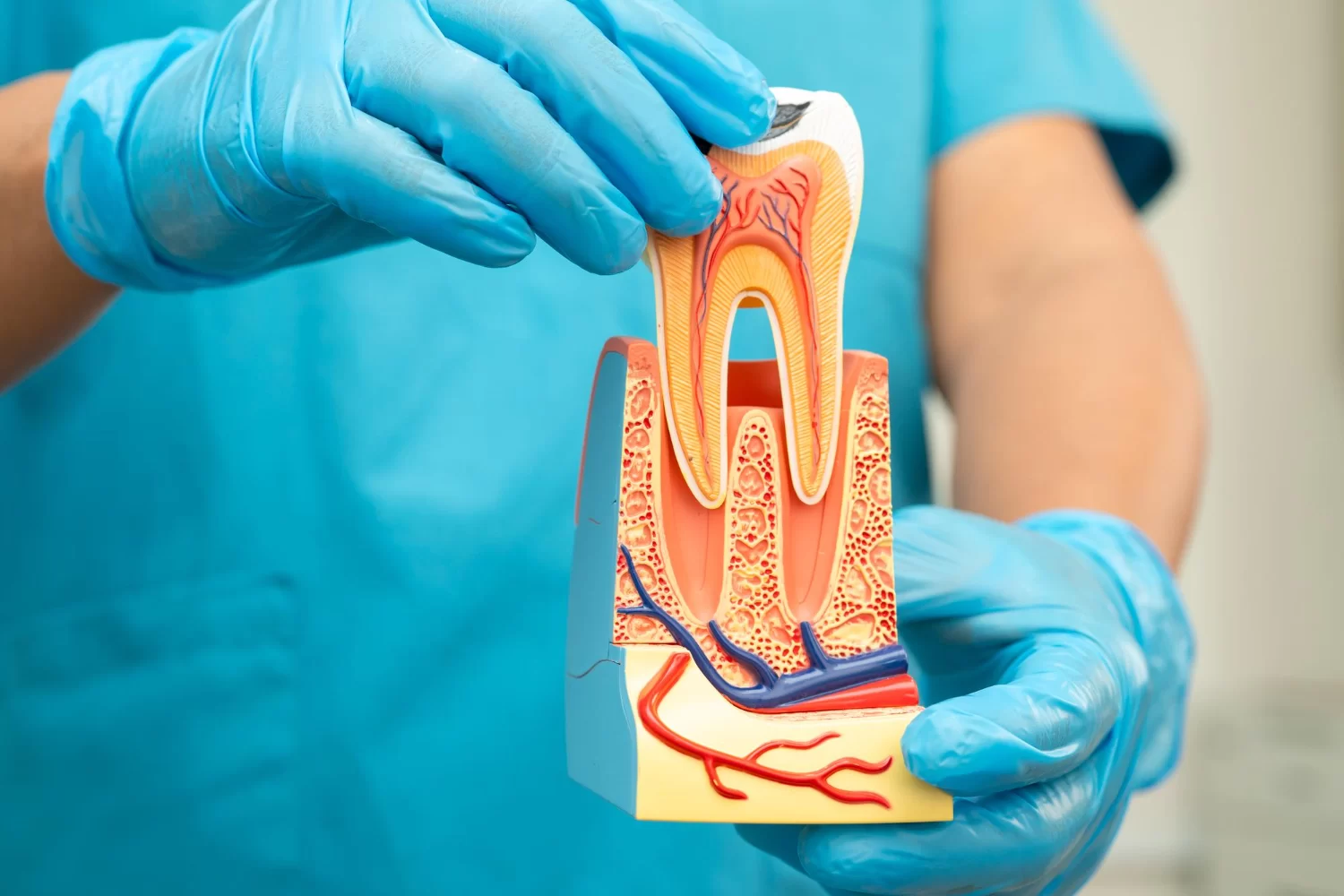General Dentistry
Root Canal Treatement
Root canal treatment is a procedure used to save a damaged or infected tooth by removing the infected pulp inside.
The dentist cleans and seals the space to prevent further infection.
It helps alleviate pain, restore tooth function, and avoid tooth extraction.
Root canals are a common and effective way to preserve natural teeth.
Root Canal Treatment Is Required For
Root canal treatment is required when bacteria enter the inner part of the tooth, known as the pulp, which contains the tooth’s nerve and blood vessel. This usually happens as a result of deep decay, a cracked or broken tooth, or trauma that allows bacteria to reach and infect the nerve system. Once the pulp becomes infected or inflamed, it can cause symptoms such as severe toothache, sensitivity to hot or cold, swelling, or even an abscess. If left untreated, the infection can spread, leading to more serious complications or tooth loss. A root canal procedure removes the infected pulp, disinfects the inside of the tooth, and seals it to prevent further infection, ultimately saving the natural tooth and restoring its function.


Benefits of Root Canal Treatment
1
Pain Relief
It eliminates the severe pain caused by infection or inflammation in the tooth’s pulp
2
Tooth Preservation
Root canal treatment helps save a tooth that would otherwise need to be extracted.
3
Restores Function
After the procedure, the treated tooth can function normally for biting and chewing.
4
Prevents Spread of Infection
The treatment removes the infection and seals the tooth, preventing it from spreading to other areas.
Frequently Asked Questions
Does root canal treatment hurt?
No, root canal treatment is usually done under local anesthesia, so the procedure itself is not painful. Some discomfort may occur afterward, but it is manageable with over-the-counter pain relievers.
How long does a root canal procedure take?
A typical root canal procedure can take one to two hours, depending on the complexity of the tooth and the infection.
Why would I need a root canal?
A root canal is necessary when the tooth pulp becomes infected or damaged due to deep decay, trauma, or a cracked tooth, causing pain and potential infection.
How long does a tooth treated with a root canal last?
A tooth treated with a root canal can last many years, often a lifetime, if properly cared for, though a crown is often placed afterward to protect and strengthen the tooth.
Is there an alternative to root canal treatment?
The main alternative is tooth extraction, but a root canal is generally the best way to preserve the tooth and prevent further complications.
Get in Touch
Contact us today using this form and our support team will reach out as soon as possible.
Opening Hours
| Monday to Friday | 8:30 AM – 5:00 PM |
| Saturday | By appointment only |
| Sunday | Closed |
| Closed for Lunch | 1:00 PM – 2:00 PM |
Address
Kingston Hill Dental
21 Kingston Hill, Kingston Upon Thames, Surrey KT2 7PW
